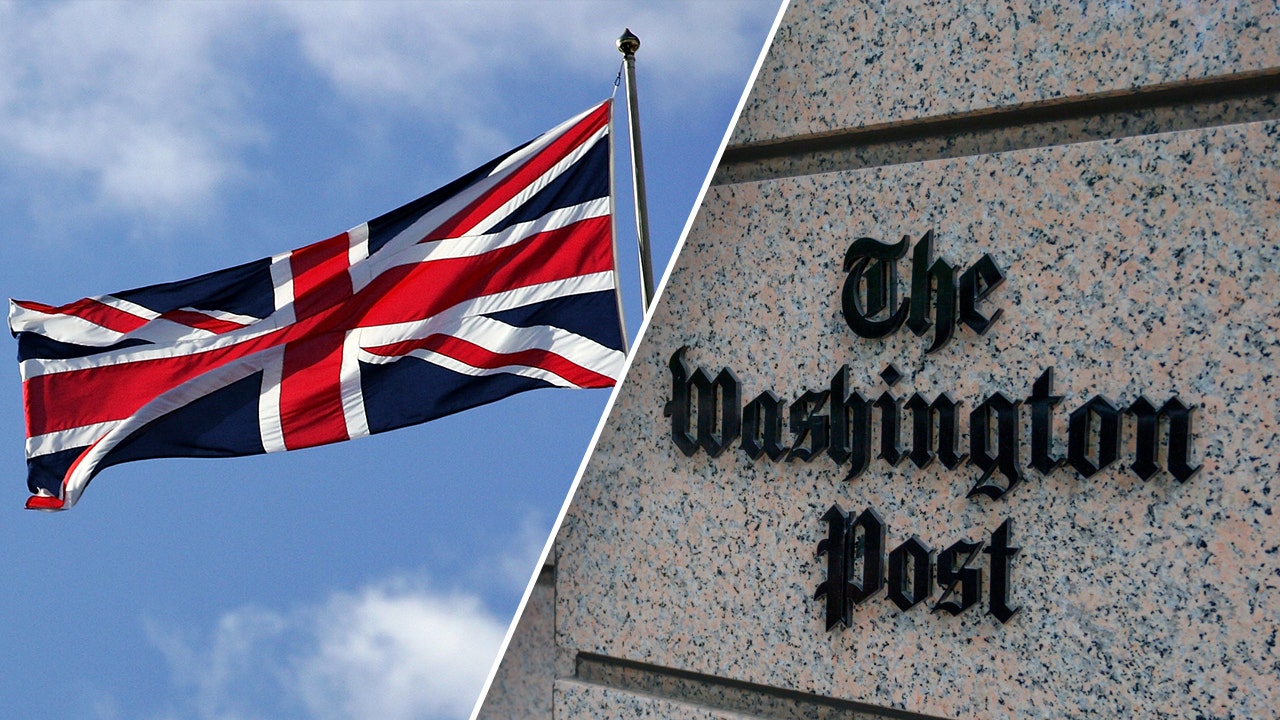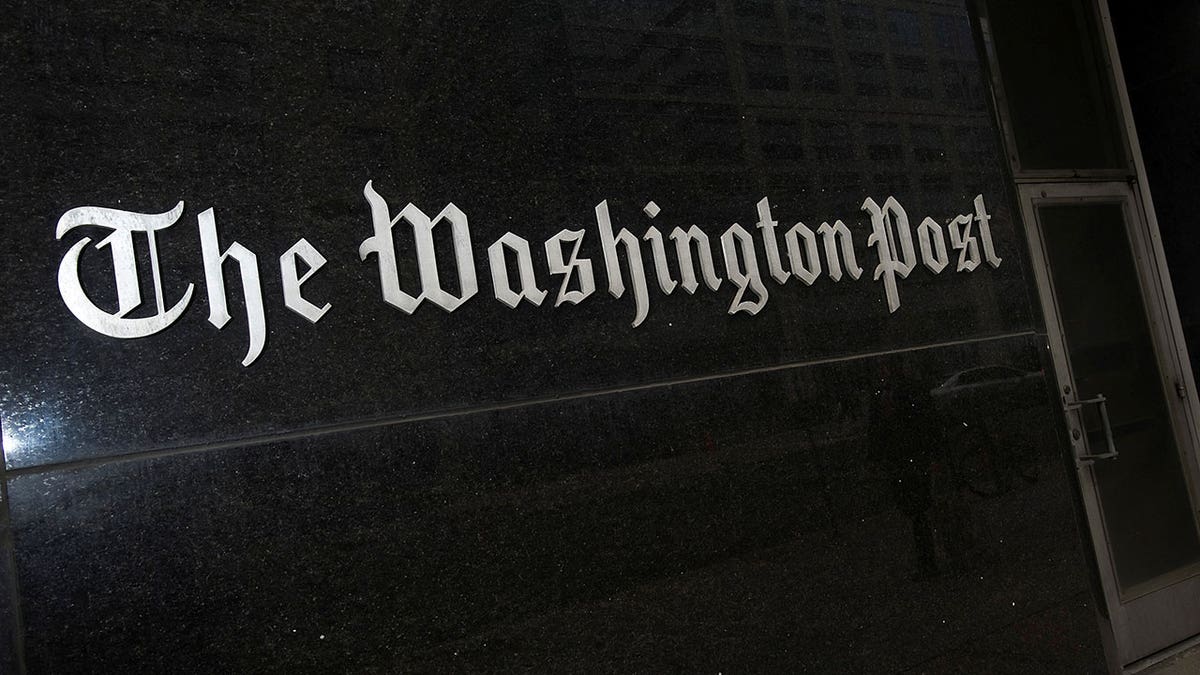British journalists take top American jobs, prompt meltdown at Washington Post

Not since John, Paul, George and Ringo came to our shores has there been so much chatter about a British invasion.
The media, like Paul Revere, love to warn that the British are coming, secure in the knowledge that our defiant colonies are here to stay.
But they’re not loving this latest wave quite so much, since our struggling industry – and in many cases our jobs – are at stake.
No one’s dumping bags of tea in the harbor just yet, but they are polluting the journalistic waters with complaints about the new bosses – those cheeky Brits, they bloody well don’t get how we do things here.
The counter-view, as the British media executive who now runs the Washington Post told his agitated staff: “People aren’t reading your stuff!”
On one level, it’s all pretty simple. This executive, Will the Post’s CEO, has made a hash of things at his new company. So the press needs a trend story to keep the narrative going.
Editorial shakeups, including recruitment from across the pond, have opened up another rift at the Washington Post. (Gareth Cattermole/Getty Images (left) / ERIC BARADAT/AFP via Getty Images (right))
To catch you up: Lewis, former editor of London’s Daily Telegraph – as well as ex-publisher of Rupert Murdoch’s Wall Street Journal – was named in a civil suit related to the British phone-hacking scandal of the 2000s. Lewis has always denied wrongdoing.
(And just to be clear: Post owner Jeff Bezos is entitled to pick anyone he wants. The paper lost $77 million last year, so editor Sally Buzbee (American and extraordinarily low key) got the boot.
Turns out Buzbee told Lewis she planned to publish a story when the British suit named him. He told her that was a lapse in judgment and hung up. An NPR reporter says Lewis offered him an exclusive interview in exchange for not writing about his role in the hacking mess.
Sorry, Lewis seems rather clueless in not divining that he doesn’t get to dictate whether he’s covered or not, especially in a place renowned for having an independent newsroom (which Bezos has by all accounts respected). The Post didn’t survive the Nixon administration’s threats during Watergate to roll over for a new chief executive. Lewis took what would have been a routine story and made it a cause célèbre.
He told the Post, whose reporting has been admirably aggressive, “I did whatever I could to preserve journalistic integrity. I took a view very early on that I’m never going to talk about it.”
There’s even talk now that Will Lewis may not be able to hold onto his job.

Robert Winnett, deputy editor of the U.K.’s Telegraph Media Group, has been tapped as the new editor of the Washington Post (REUTERS/Jonathan Ernst/File Photo)
“He seems to know squat about how to talk to reporters — especially considering his long tenure as a top reporter and editor in England before moving over to the business side,” says Politico’s Jack Shafer.
“Lewis had to know coming into the Post job that the phone-hacking subject could not be avoided…Dropping the subject down the memory hole or deterring the Post from writing about it was never a serious option. Can he possibly be that dense?”
I’ll reserve judgment on that.
WASHINGTON POST INSIDERS WORRY PAPER ‘LOST AT SEA’ AS HIGH-PROFILE EXITS, FINANCIAL HEADACHES MOUNT
After the election, the Washington Post’s new editor will be, yes, another Brit. Robert Winnett, who is now deputy editor of the Telegraph Media Group, and ran London’s right-leaning Telegraph, will take the reins. He, of course, has worked with Lewis before. (Did they all go to the same prep school or something?)
The New York Times offers theories on “the enduring appeal of British editors to American proprietors.”
There’s the erudite accent. The tradition of scrappy journalism (which sometimes crosses the line, as the royal family can attest). They tend to be paid less than their cousins in the States. And Fleet Street’s “reputation for fuzzy ethics” can be entertaining, while also getting them into trouble.

Top editorial brass at several large American publications, including the New York Post and Associated Press, comes out of the U.K. (Photo by Jack Taylor/Getty Images)
So how are they faring?
The diplomatic phrase would be culture clash.
The New York Post and the AP, among others, are now run or managed by Brits.
SUBSCRIBE TO HOWIE’S MEDIA BUZZMETER PODCAST, A RIFF ON THE DAY’S HOTTEST STORIES
Emma Tucker, who once ran London’s Sunday Times, became editor of the Wall Street Journal last year. This was after former BBC chairman Mark Thompson, who ran the New York Times Co. for several years, became chairman of CNN, where staffers are still waiting to see his grand plan.
National Review, based on nearly a dozen interviews, says Tucker has decimated the Washington bureau without recognizing the impact on the election or on the paper’s signature business coverage. The new D.C. bureau chief just published a book highly critical of Donald Trump.
Working at the Journal has “turned from a dream job to just a slow-rolling nightmare,” said one former staffer.
CLICK HERE TO GET THE FOX NEWS APP
Employees say Tucker “often praises lifestyle stories with snappy headlines that get lots of clicks, like recent features on polyamory and having ‘great sex’ on vacation.” (And the problem is…?)
I’ve worked with, and for, British journalists for decades. None of this is exactly new. The New Republic made Andrew Sullivan, a gay British conservative, editor of the liberal American magazine in the late 1980s. Anna Wintour first became editor of Vogue in 1988.
They are sharp, savvy and sometimes ruthless, filling a void left by self-satisfied and long-winded American journalism – even if they don’t quite get our provincial ways.
Related
U.S. economy adds jobs as federal layoffs and rising unemployment…
Julia Coronado: I think it's too early to say that the U.S. is heading to a recession. Certainly, we have seen the U.S. just continue t
The job listing site highlighting H-1B positions so Americans can…
A mysterious new job listings website recently went live, solely showing roles companies want to offer to their H-1B holders seeking Green Cards in an attempt t
Tepid February Jobs Report Boosts Odds of a June Fed…
Federal Reserve Board Chairman Jerome Powell speaks during a news conference. Photo by Chip ... [+] Somodevilla/Getty Images.Getty Images The February jobs repo
French university offers jobs to American scientists afraid of government…
As the current federal government in the U.S. has been freezing or cutting funding for several research grants, a French university has stepped in with an offer













